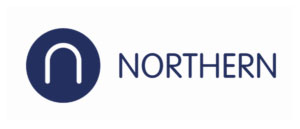How we found positivity and hope in working together on climate action
A blog written collaboratively by Metal’s team
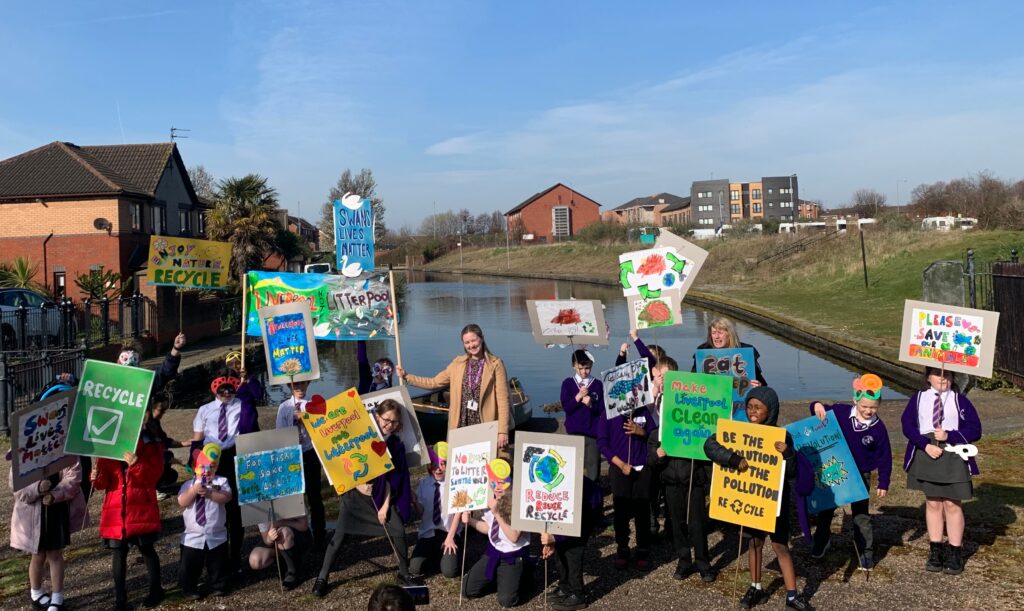
Last year, we launched Metal’s new mission to inspire positive change through art and creativity. We changed how and what we programme, and launched three research and development themes to guide how we inspire social change: Community and Connection; Climate and Nature; and Social Justice. Each month we reflect on our work in each of these areas, and this month our focus is on our relationship with our planet.
We’re not the only ones focusing on climate this month, as representatives from all over the world return from negotiations in Brazil at the United Nations Climate Chance Conference (COP30). We’ve also watched hurricane Melissa wreak devastation in Jamaica, Cuba, and Haiti, and here at home in UK we experienced an unusually warm autumn punctuated by intense storms. The effects of climate change are already being felt locally in our communities, and it has never been more urgent to centre this theme in our work.
In the face of this, it would be easy to become disheartened, but we’ve found positivity and hope in exploring these topics through creativity, and working collaboratively to think about how communities, artists and peers can act. Here’s a few insights from the team on the value of creative collaboration to take action for climate and nature.
Working with artists and communities to take action
Earlier this year the Contains Joy recycling residency (funded by Culture Liverpool) took place – a creative project where Metal commissioned four sustainability-driven artists to work with schools and communities across Liverpool to rethink our relationship with waste in fun, imaginative ways. Focusing on collective creation, artists Andrea Ku, Adam Sadiq (Ecosystem2), Niloo Sharifi, and Laura-Kate Draws explored themes including upcycling, the science behind recycling, and citizen activism with young people at school.
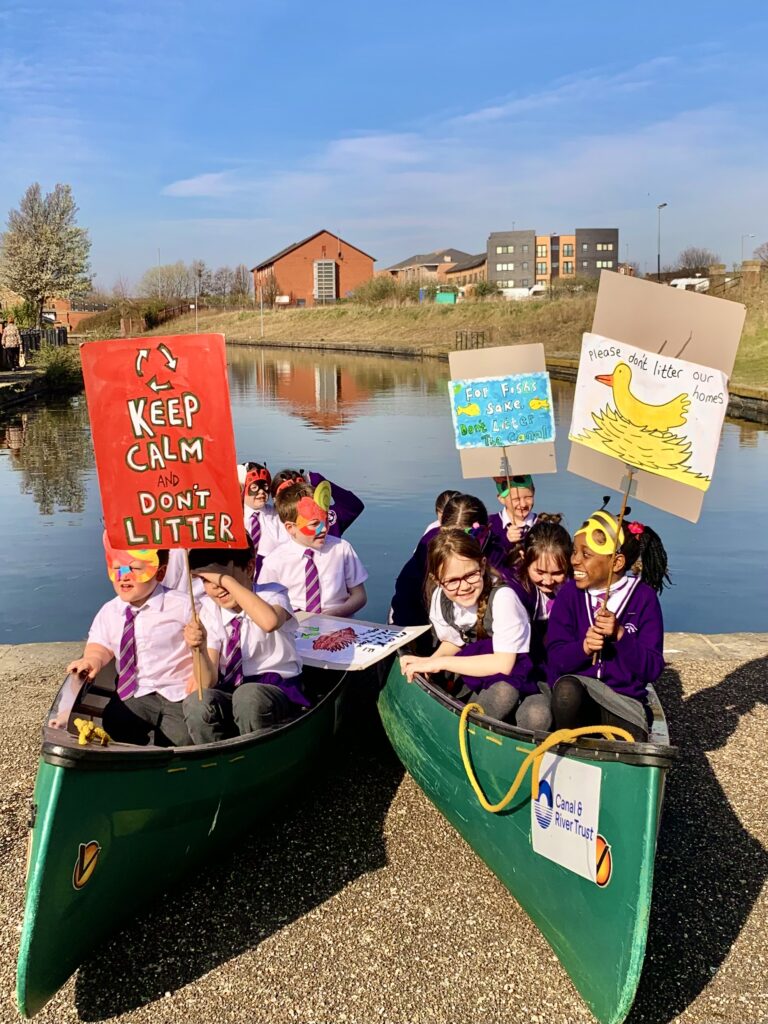
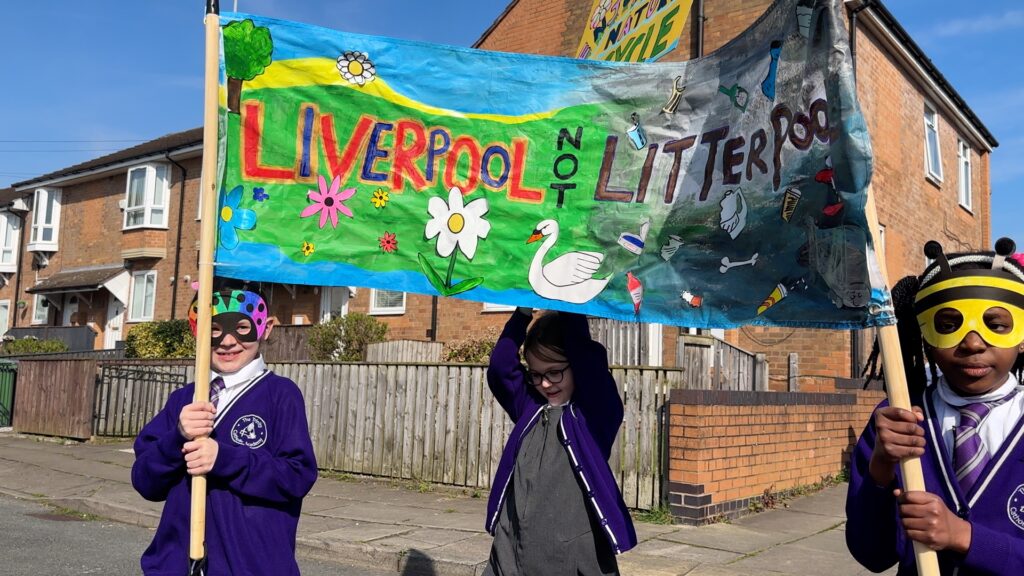
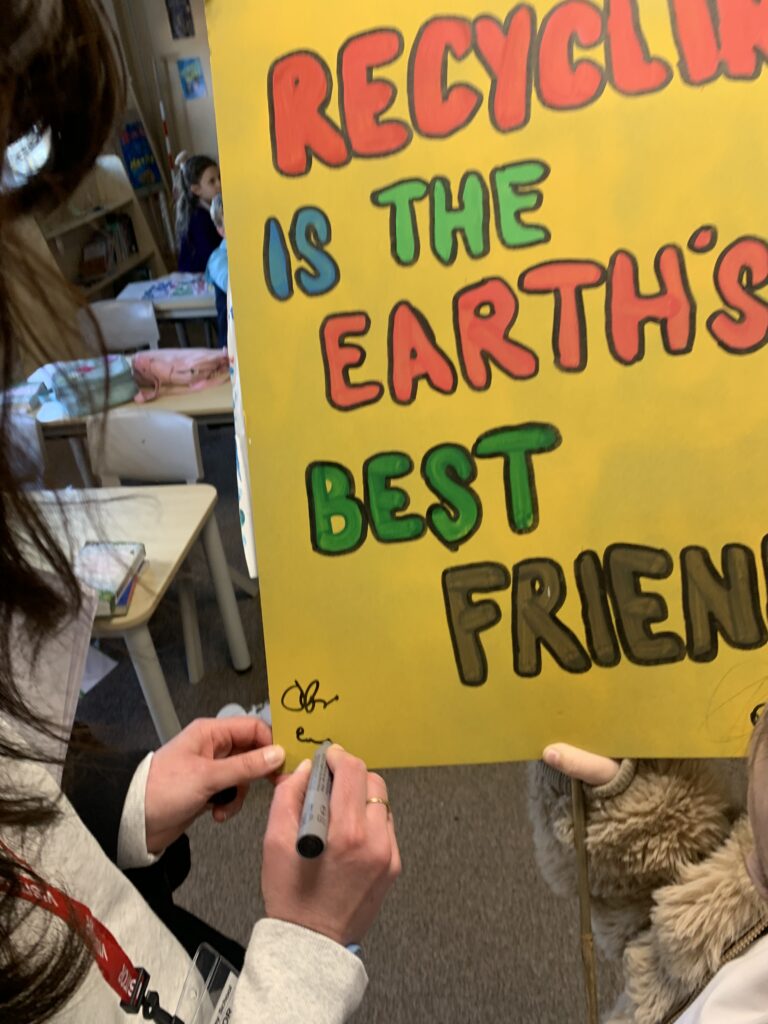
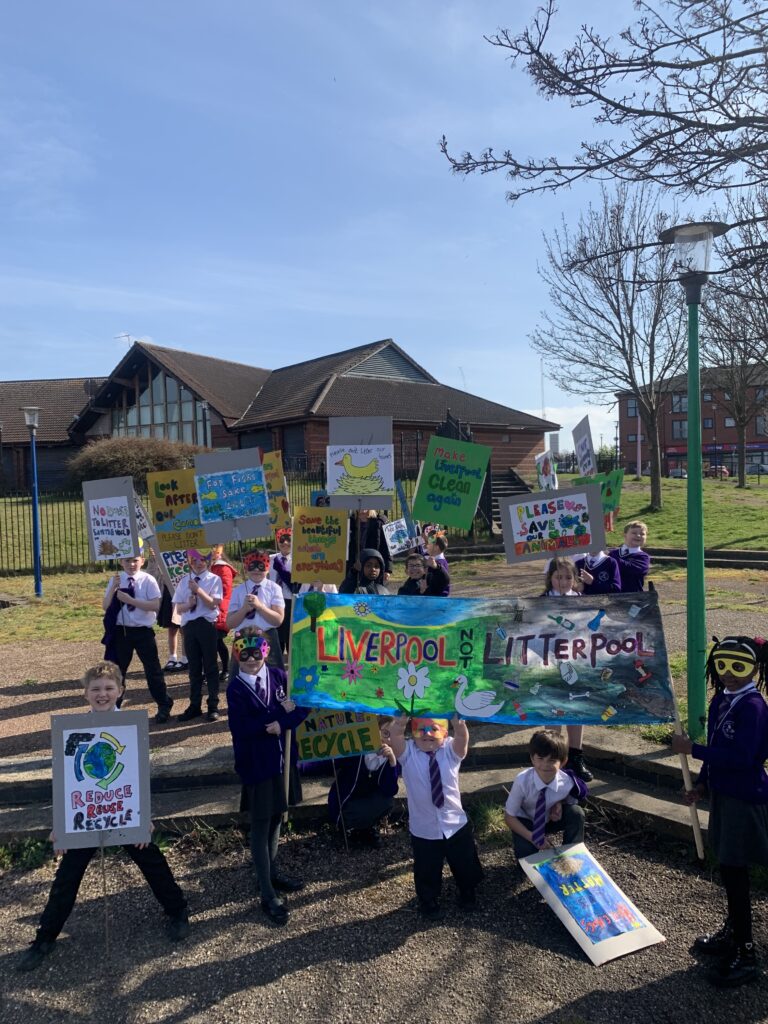
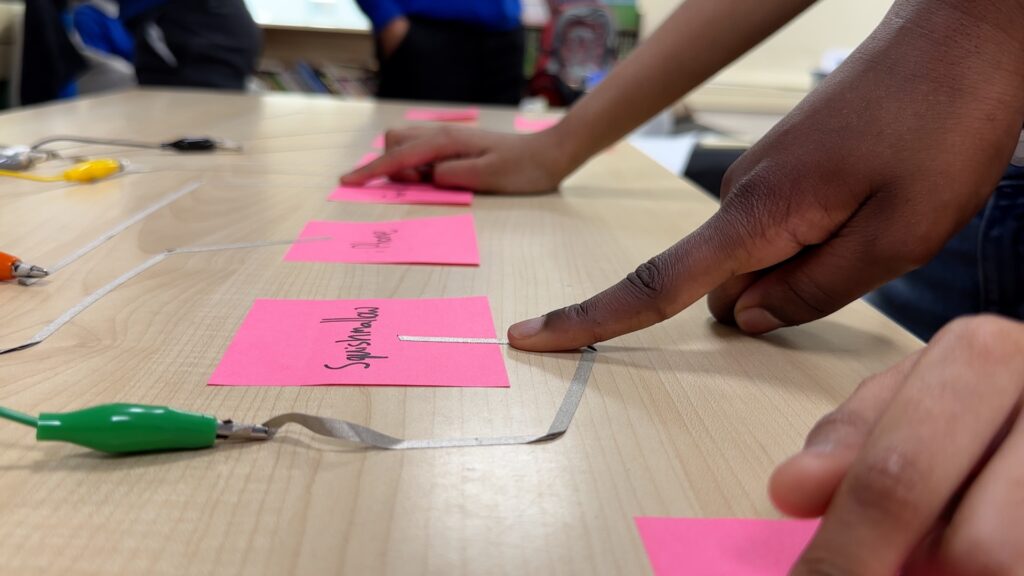
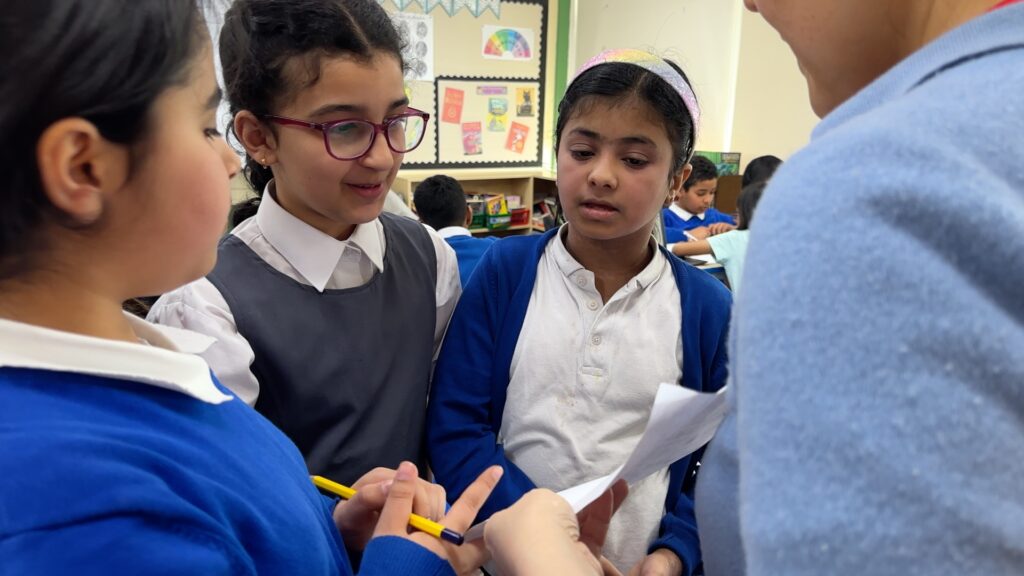
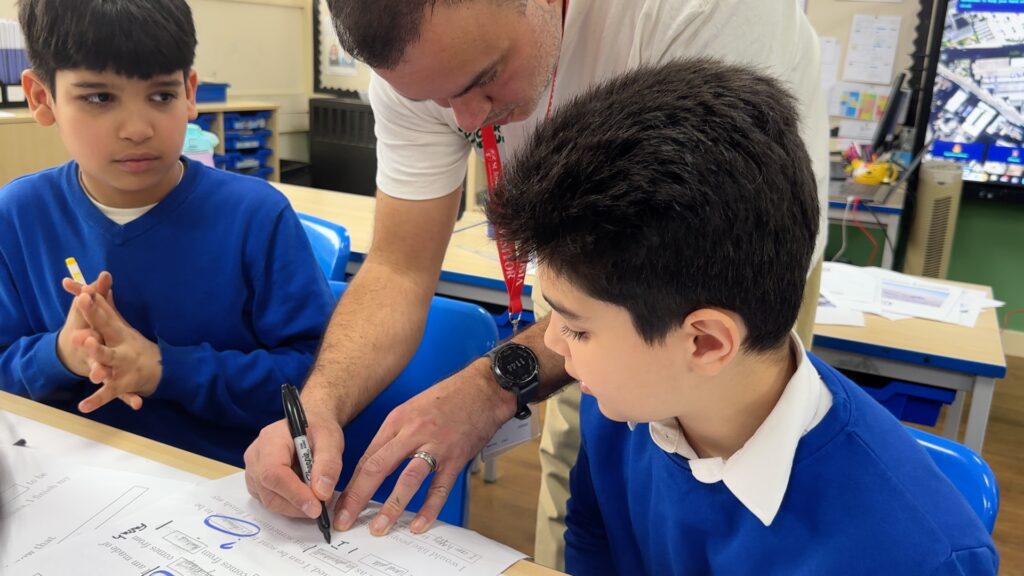
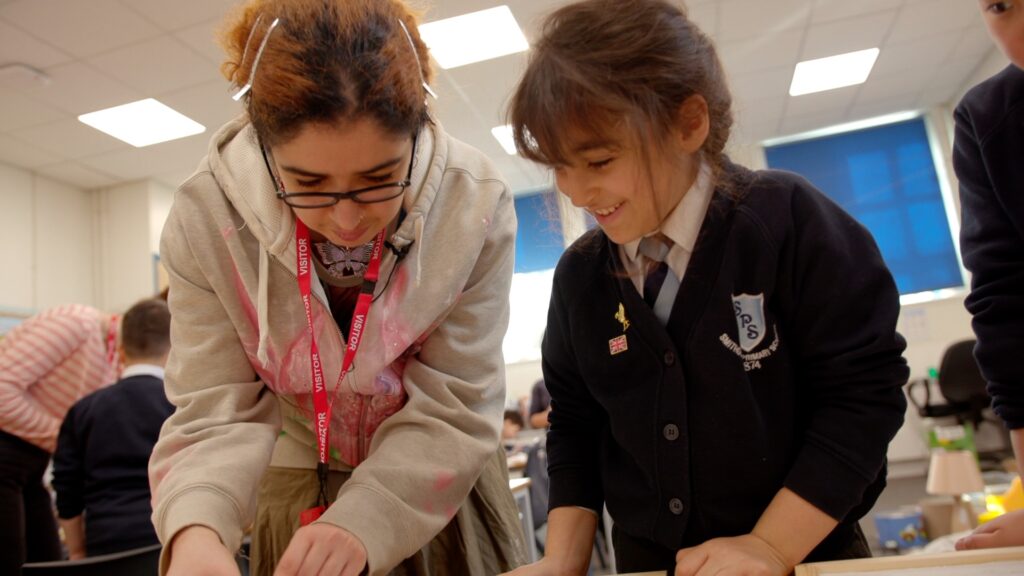
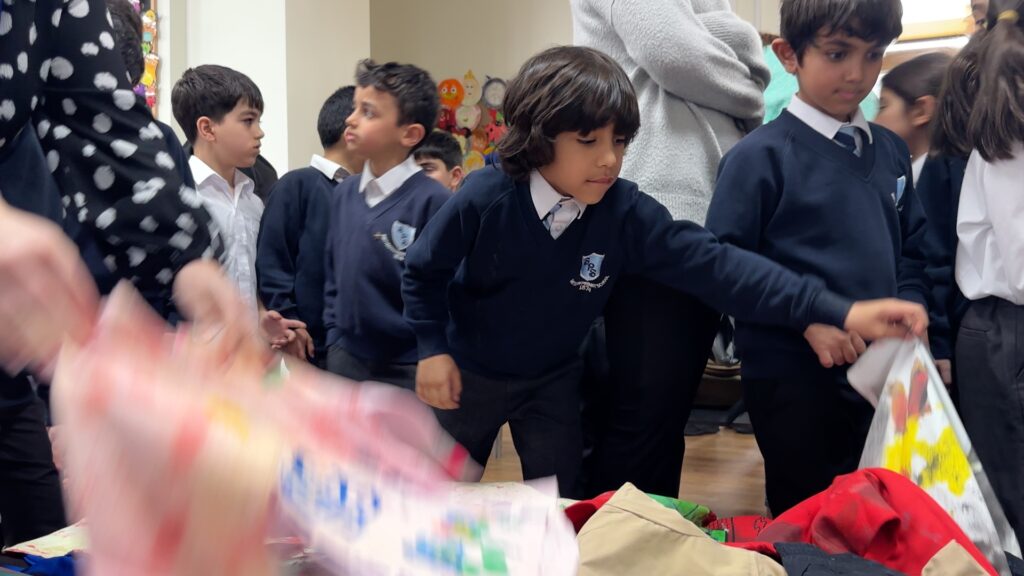
Photos: Contains Joy, Trinity Catholic Academy Climate Protest, Commissioned by Metal with public funding from Arts Council England and Liverpool City Council © Andrea Ku, 2025
“Looking back on all that was accomplished during Contains Joy it’s so clear what a visit from a working artist to a primary school can do – you can tell that fun was had alongside those ‘lightbulb moments’ – and that’s what makes for a lasting impact. Niloo’s upcycled fashion show, Ecosystem2’s interactive map, Andrea’s how-to protest parade, and Laura-Kate’s card game – an incredible legacy and so memorable for Liverpool’s current ‘Generation Alpha’.” – George Maund, Programmes and Operations Administrator, Metal Liverpool
“It’s important for us to listen to what kids have to say about their environment – their issues about litter and recycling. They are the ones that will have to grow up with it. We might know what to do and when to do it, but they will have opinions about how they can help nature and the local environment and what they can do.” – Andrea Ku, artist.
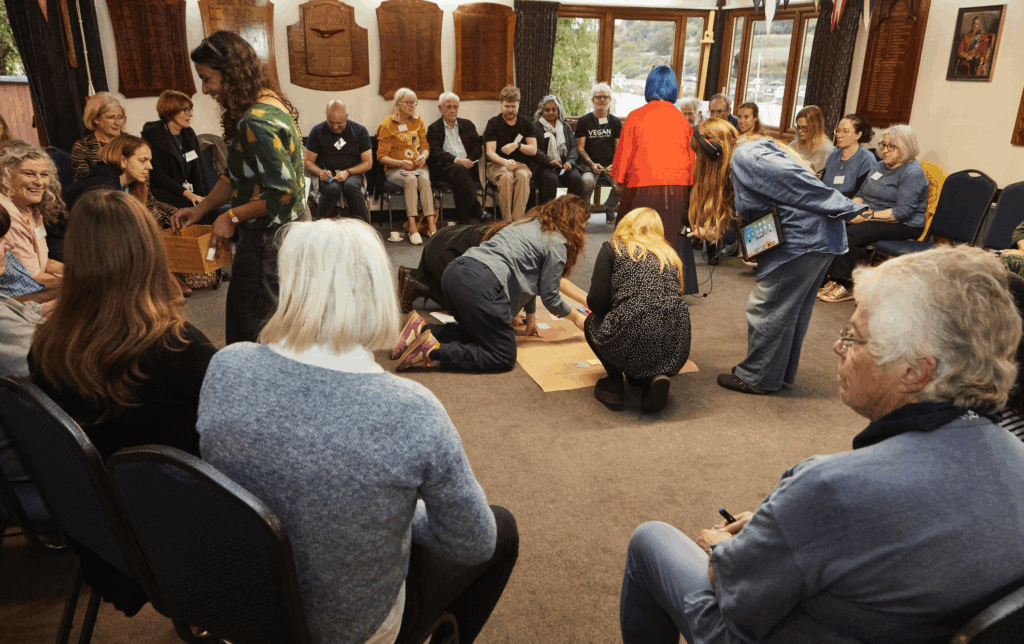
In South Essex, we’ve been inspired by how people are coming together to imagine what their places can be. Through This Is Us, in collaboration with Estuary Festival, we’ve seen that fun, creativity, and care for the environment are deeply connected. Local people in Castle Point have shown a real passion for protecting their green spaces and celebrating their shared identity. There are several voluntary groups already organising to protect these spaces, and we’ve found that there’s a clear role for culture to play in ensuring they are connected to each other.
“Our role as cultural organisations is to help weave those connections — bringing groups together, amplifying what’s already happening, and using creativity to make collaboration joyful, visible, and lasting.” – Andrea Cunningham, Director, Metal Southend.
Over in Peterborough, Metal’s team are working with Men’s Shed and others (The Kite Trust, UCP) to help design a portable reading room at The Green Backyard through workshops led by The Alternative School of Economics and ReCollective. The shed project offers shared workshops where people can enjoy fixing and making things in the company of others, surrounded by nature in a community garden. Research has proven that being out in nature has a positive effect on wellbeing and mental health, and we’re delighted to help create a quiet space for reflection and reading for the local community. Metal Southend offers A Walk In The Park, a strand of Connect & Create in collaboration with Southend Council, that connects people to nature to improve wellbeing.
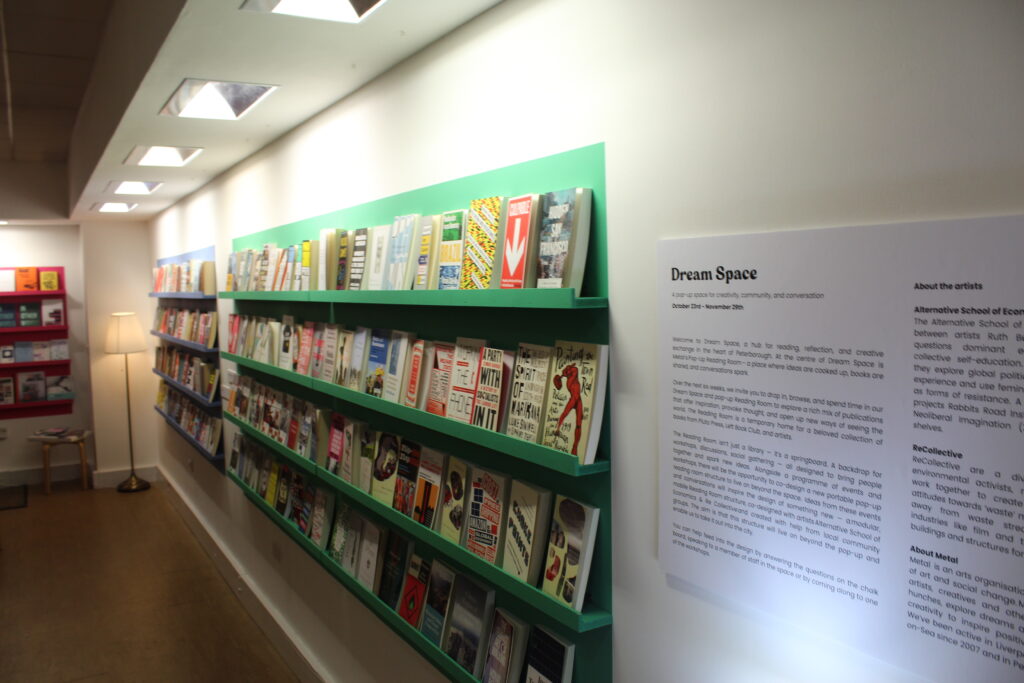
Also in Peterborough our temporary hub, Dream Space, features a reading room that’s hosting books on our research themes – including climate and nature. It’s lovely to make them freely available for people to flick through and sit down to read. A team favorite is the Anti-Capitalist Book of Fashion which has a section on the impact of the fashion industry – and it actually ended up inspiring a whole programme, Sustainable Fashion Week (2022), with workshops around upcycling, creating natural dyes, discussions around permaculture!
Managing our own carbon footprint
As part of the UK’s cultural ecosystem, we also must take responsibility for reducing our environmental impact. We work with peer organisations to reduce our environmental impact and are founders of the Shift Liverpool sustainability network. Established in 2021, the network shares knowledge, explores greener ways of working, and promotes reducing our impact as a sector.
“Where knowledge exchange is a crucial step in working towards decarbonising the culture sector, Shift has given a unique platform for arts organisations in Liverpool to come together and make a difference. Each arts venue, public arts team and socially engaged organisation has a role to play in inspiring audiences, communities and each other in ensuring the climate crisis is acted upon.
“Shift has helped galvanise action by bringing in expert knowledge from outside Liverpool and the culture sector, presenting case studies on creative action from staff training through games, to testing second life material uses for exhibitions and discussing collective action to decarbonise buildings. We have shown how bringing people together can not only provide collaborative ways of working but help each organisation know the challenges we’re facing, and collectively celebrating the successes.” – Jon Davies, Producer, Metal Liverpool.
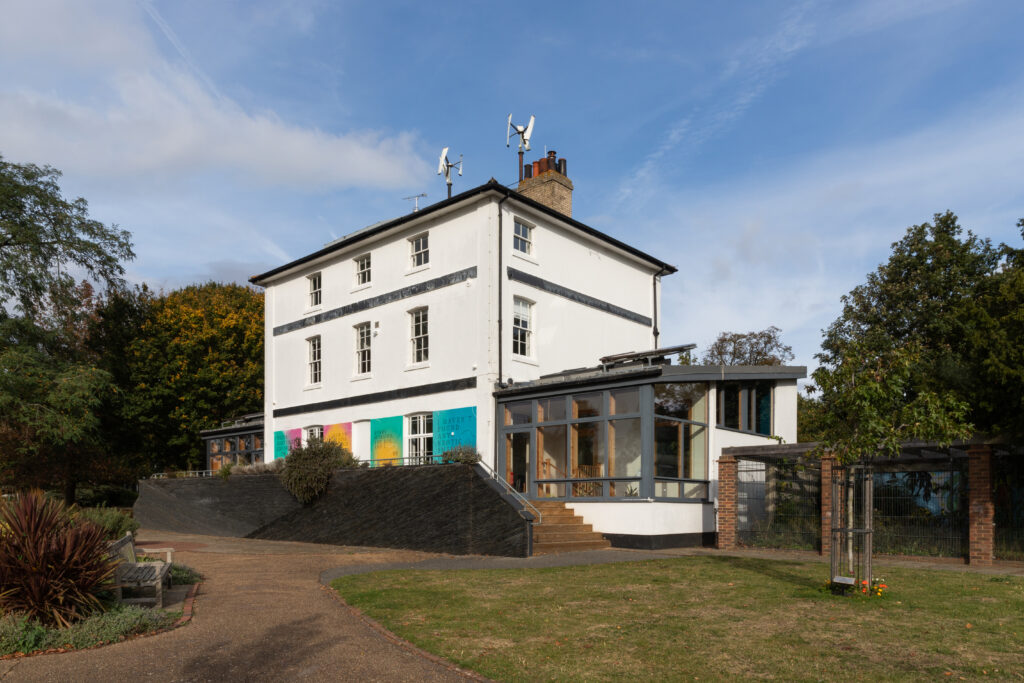
At Metal we have an environmental policy that we review on a regular basis, and report annually on our carbon emissions. Across our sites we do our best to be environmentally responsible too. At Chalkwell Hall in Southend we switched to a green energy provider and updated the heating system, ensuring it can link to solar panels; and when we moved from our Chauffeur’s Cottage site in Peterborough, we donated as many plants from the courtyard as we could to local community gardens, including Green Back Yard.
Final thoughts
Metal is always researching, growing, and finding new ways to understand the world. Our work on climate and nature is no different. We are exploring ideas and challenges with artists, creatives, and each other. We recognise that issues relating to climate are intersectional, and that they are interwoven with our work on social justice and the lives of the people around us. By using art and creativity to reimagine the world, we can make positive change in our neighbourhoods, support the wellbeing of our friends and families, and feel hope in the face of global challenges. We’re looking forward to bringing together what we learn across the three cities in future.

